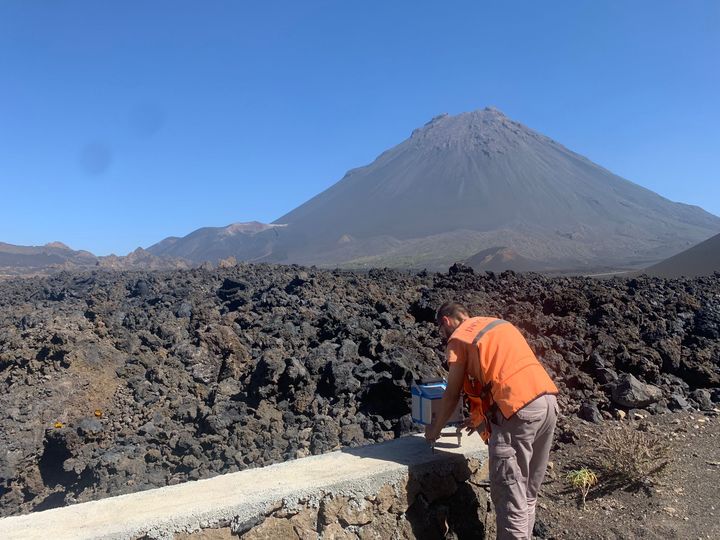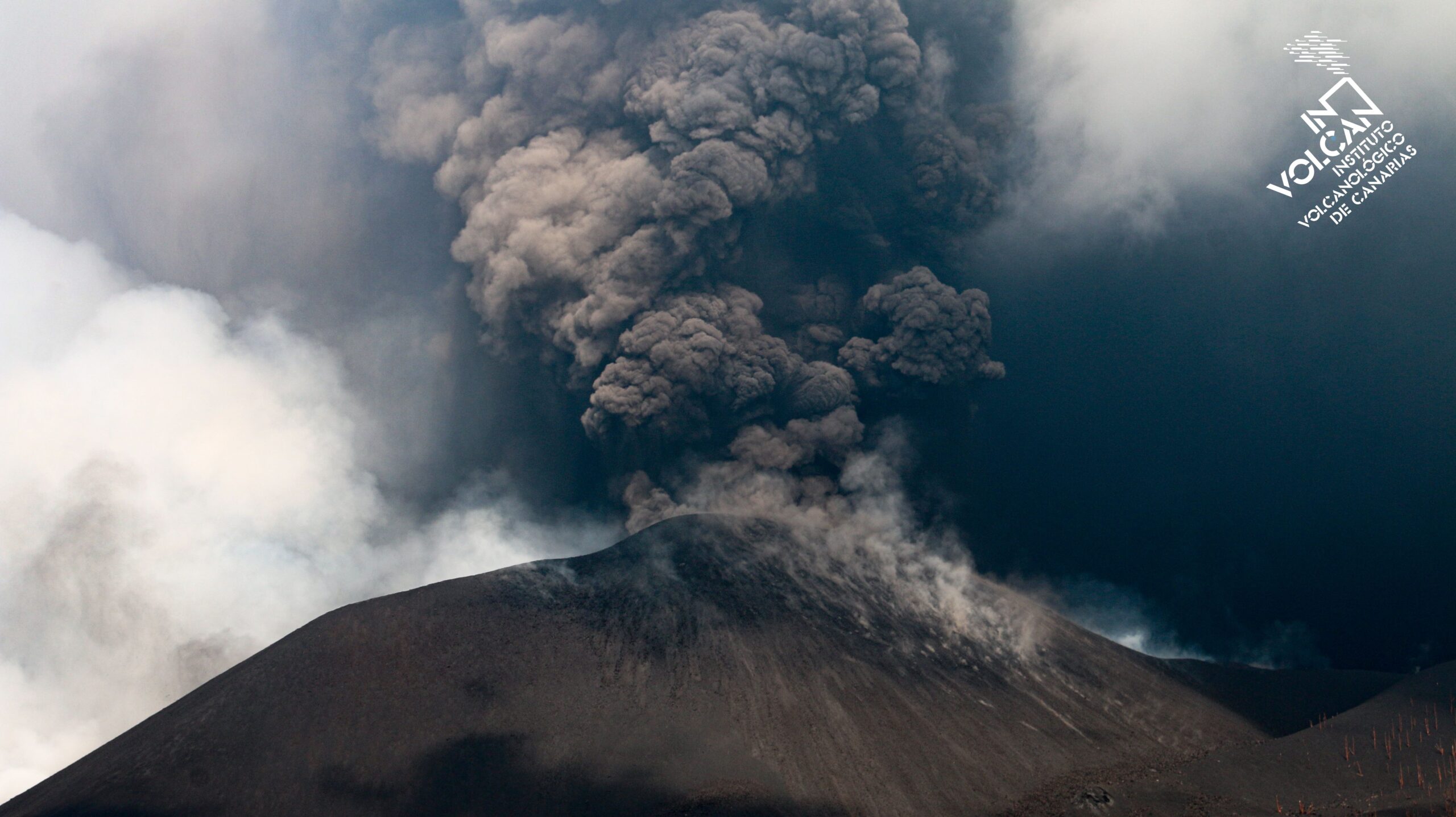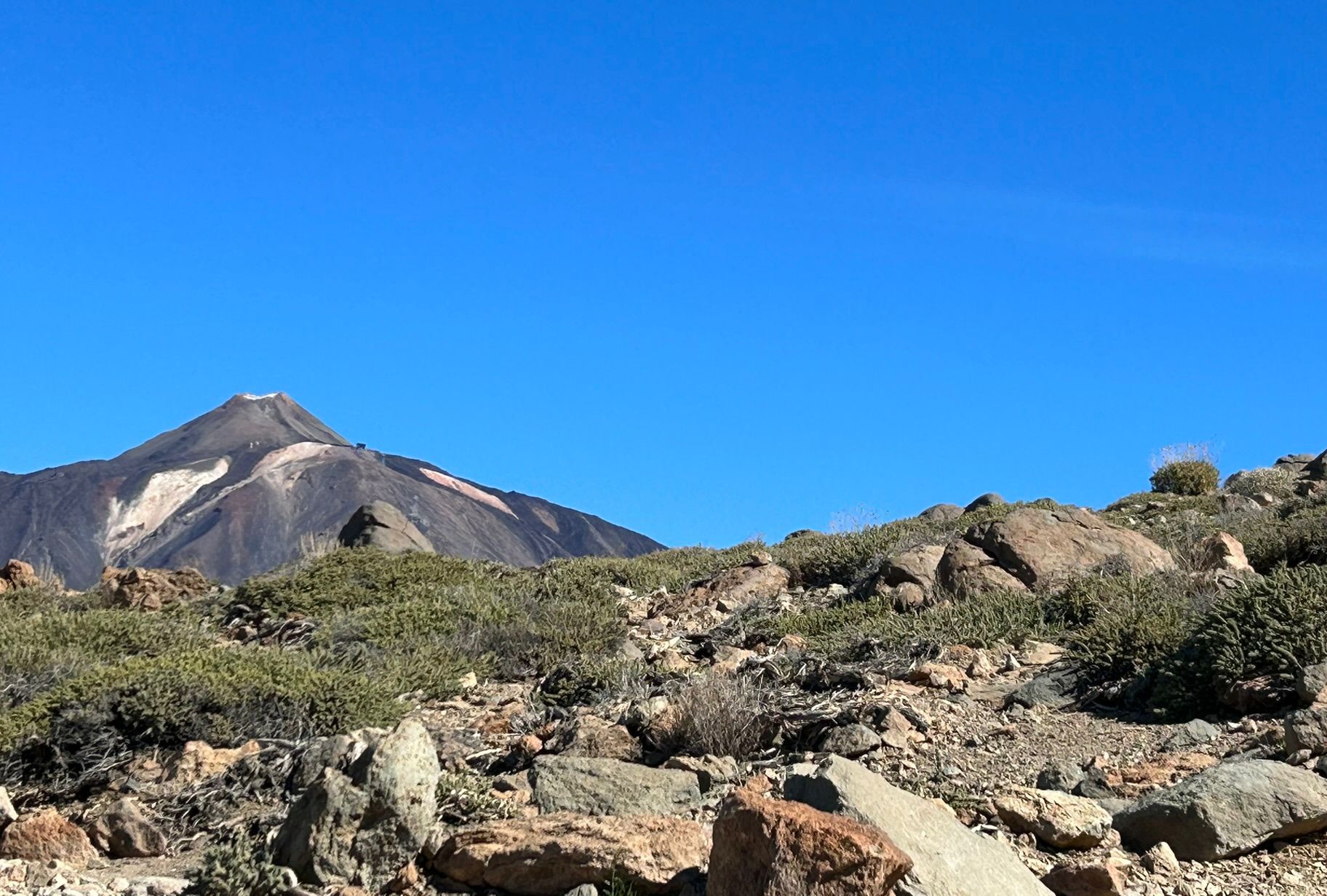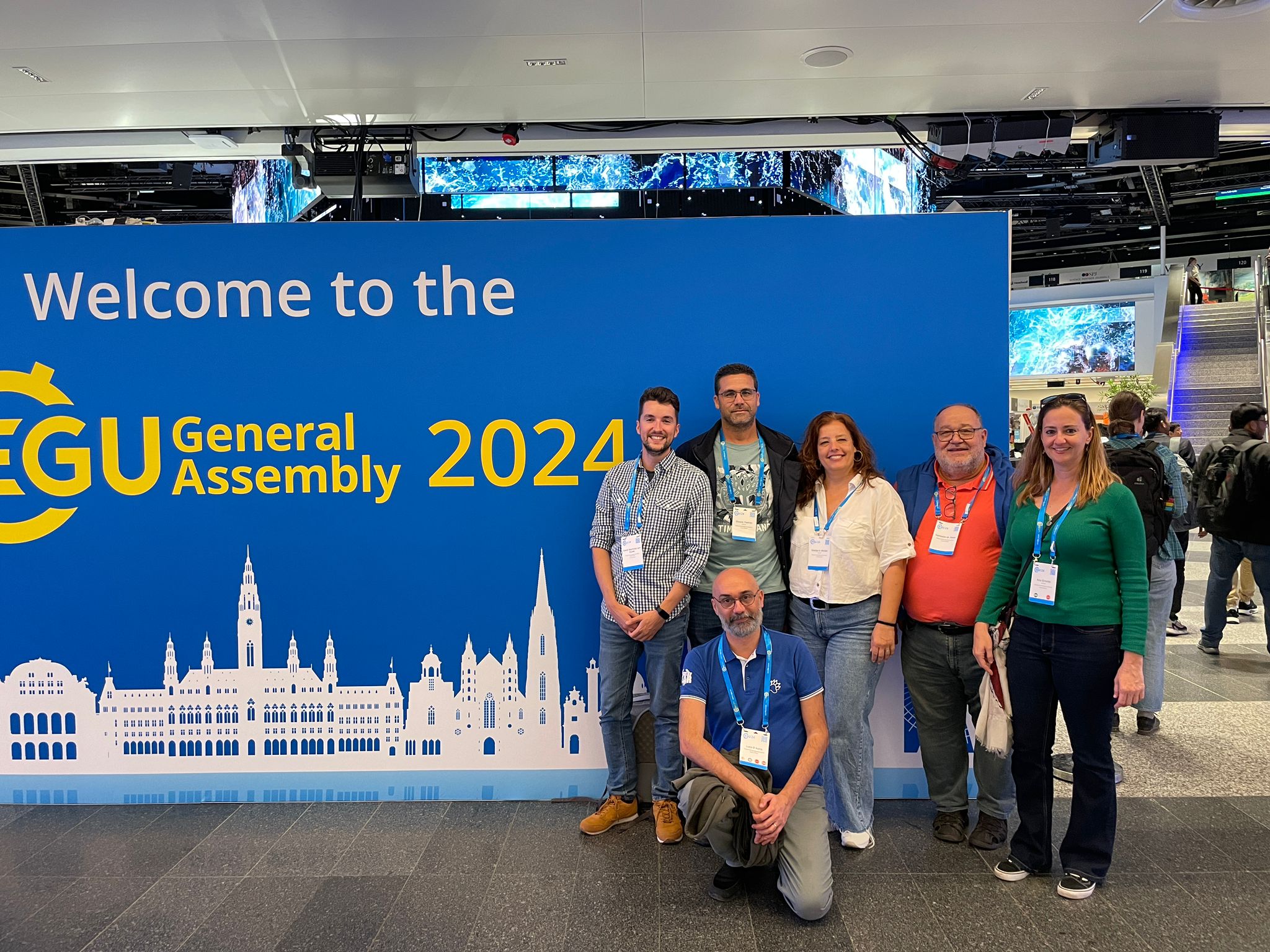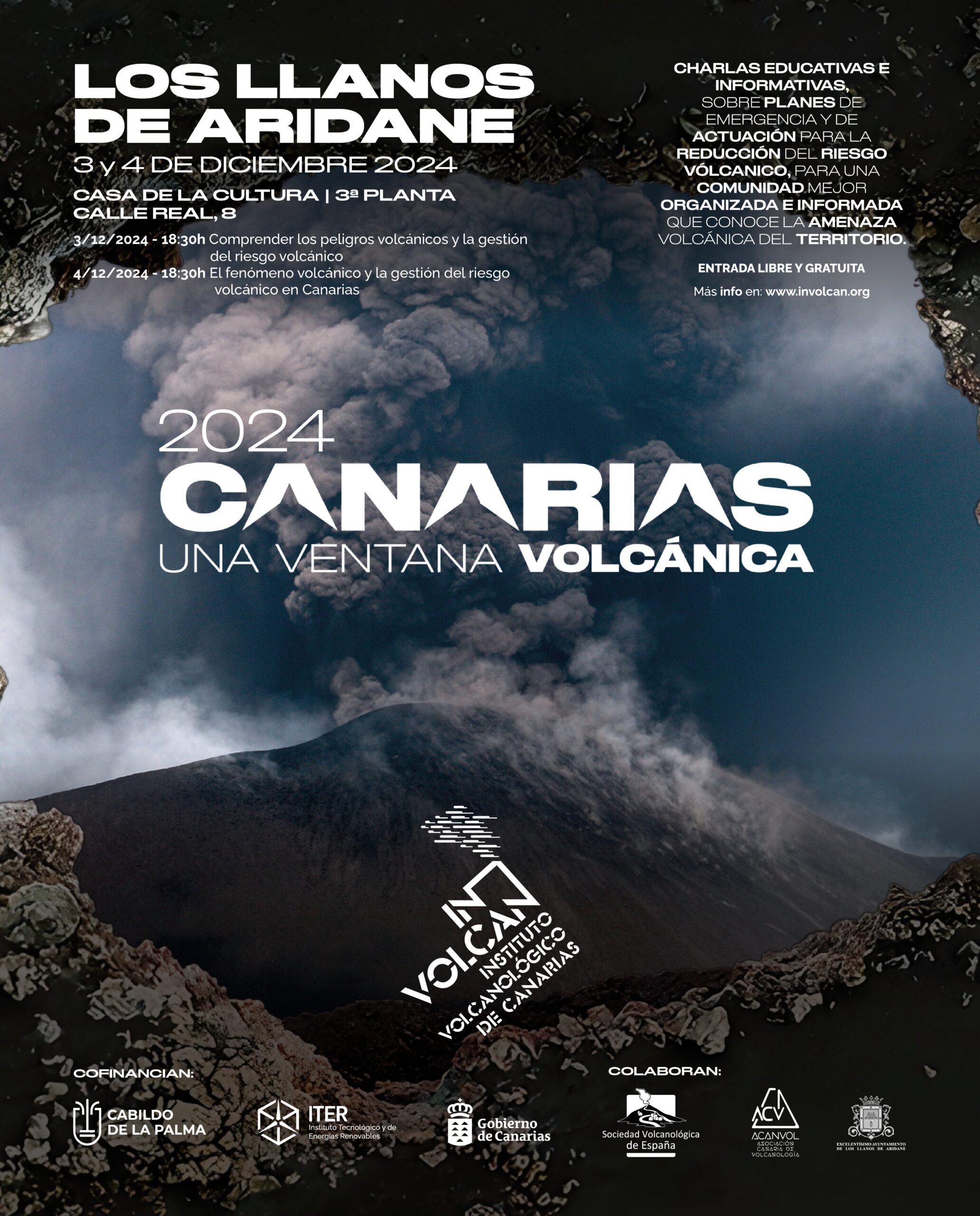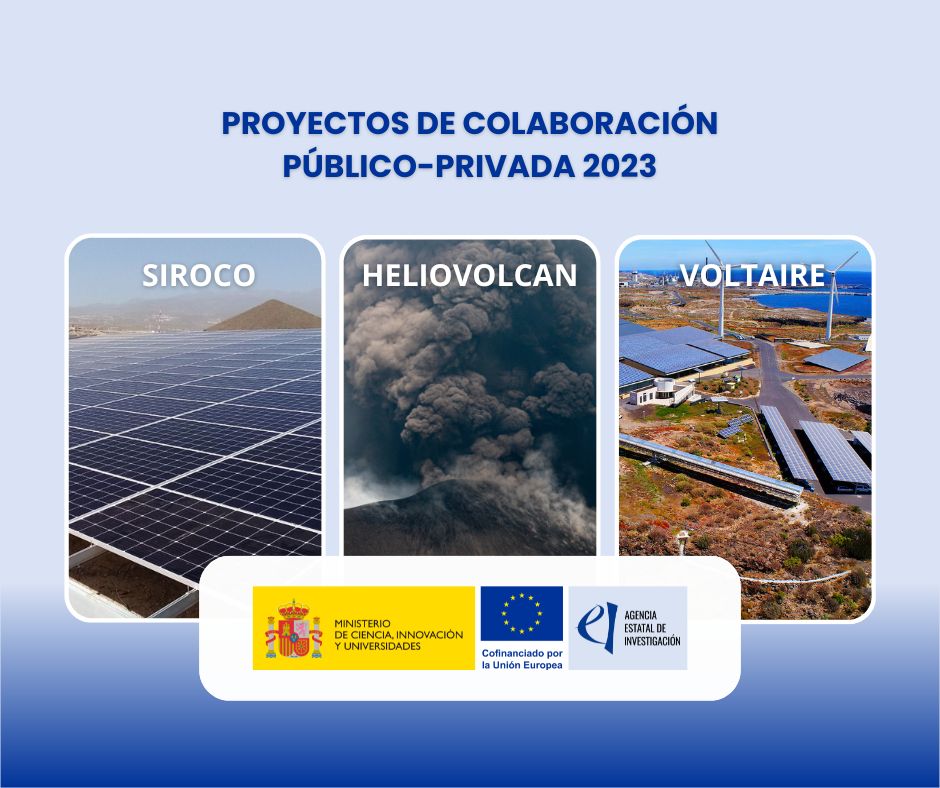Research staff of both entities, dependent on the Cabildo de Tenerife, are carrying out a scientific campaign on the Island of Fogo within the framework of the VOLRIKSMAC II project.
A research team made up of scientists from the Volcanological Institute of the Canary Islands (INVOLCAN), the Institute of Technology and of Renewable Energies (ITER), Centro de Informação e Vigilância Sismovulcânica dos Açores (CIVISA) and the University of Cape Verde (UniCV) are materializing a scientific campaign of geochemistry, geophysics and petrologic on the island of Fogo (Cape Verde) from December 9 to 18, 2022.
One of the objectives of this scientific mission, led by INVOLCAN in Cape Verde, is to evaluate the current levels of diffuse emission of carbon dioxide (CO2), hydrogen sulfide (H2S), helium (He) and hydrogen (H2) into the atmosphere through the crater of the Pico do Fogo volcano. To this end, in-situ measurements of diffuse flux of CO2 and H2S will be carried out at about 65 observation points inside the crater and gas samples will be taken at each of these points at a depth of 40 cm. Gas samples will also be taken from the existing high-temperature fumaroles (> 300 ºC) inside the crater for subsequent chemical and isotopic analysis in our geochemistry laboratory in Tenerife. The geophysics study will consist of gravimetric measurements on the island of Fogo and the petrological study in the taking of samples of volcanic rocks for subsequent chemical and isotopic analysis.
This scientific campaign in Cape Verde is part of the activities framed in the VOLRISKMAC II project (MAC2/3.5b/328), co-financed by the Cooperation Program INTERREG V-A Spain-Portugal MAC 2014-2020.
VOLRISKMAC II has the general objective to strengthen the capacities of R+D+i for the development of resilience against future volcanic emergencies in Macaronesia. This project aims to strengthen the volcanic early warning system in Macaronesia by improving instrumental networks and developing and implementing innovative methodologies, strengthening the resilience of volcanic monitoring systems in Macaronesia and generating a collaboration network between participating partners and national and/or international R+D institutions of recognised trajectory to strengthen the scientific response to volcanic emergencies in the Macaronesia.
More information about the project is available on the website: https://v2.volriskmac.com/


